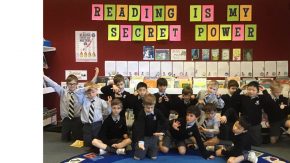PYP – Agency
As we explore the framework of PYP the third circle talks about Agency, Action and Exhibition. In this issue we will look at Agency in depth and the changes and impact that will be developed in the classrooms. There are three elements where agency is impacted – the learner, learning and teaching and the learning community. Agency, within each of these elements, means the same thing – the ability for each to have voice, choice and ownership. It is these three aspects that we will briefly consider in this edition. The enhanced PYP encourages everyone who is part of the learning community (students, teachers and parents) to have the opportunity to have agency. Possibly one of the best examples of agency is demonstrated in the PYP Exhibition – an opportunity that all Year 6 students experience in their final year of the PYP.
PYP learners as agents of their learning:·
- are actively engaged in various stages of learning including thinking about, planning, modifying and creating learning experiences;
- are actively involved in discussion, questioning and being self-directed in their creating (as opposed to passive receiving);
- apply their understanding of concepts through the construction of their learning;
- make connections to the real world by taking past experiences into their play worlds;
- have an active voice and stake in the classroom and school community · face challenges and are given the freedom to independently overcome these or fail through trial and error or experimentations;
- are risk-takers;
- express their theories of the world and these are honoured in the environment, and
- reflect on their action and are able to self-regulate.
When we encourage voice, students’ question, guide and direct learning. They propose and initiate action and participate in decision making as a learner, in the classroom and their learning experiences and goal setting and in the school community. Choice allows the co-construction of learning goals and engaging with multiple perspectives in their learning experiences.
As a result of learners having voice and choice, ownership of and responsibility for learning transfers from this. They can define their own learning goals and reflect on these to produce the next steps. Their ideas are supported throughout planning and taking action. Our students have been drivers of their learning throughout the PYP. Voice, choice, ownership and, therefore, responsibility for their learning will develop further as the staff increase the focus on agency for the learner, learning and teaching and the learning community.
Sue Gough – PYP Co-ordinator






